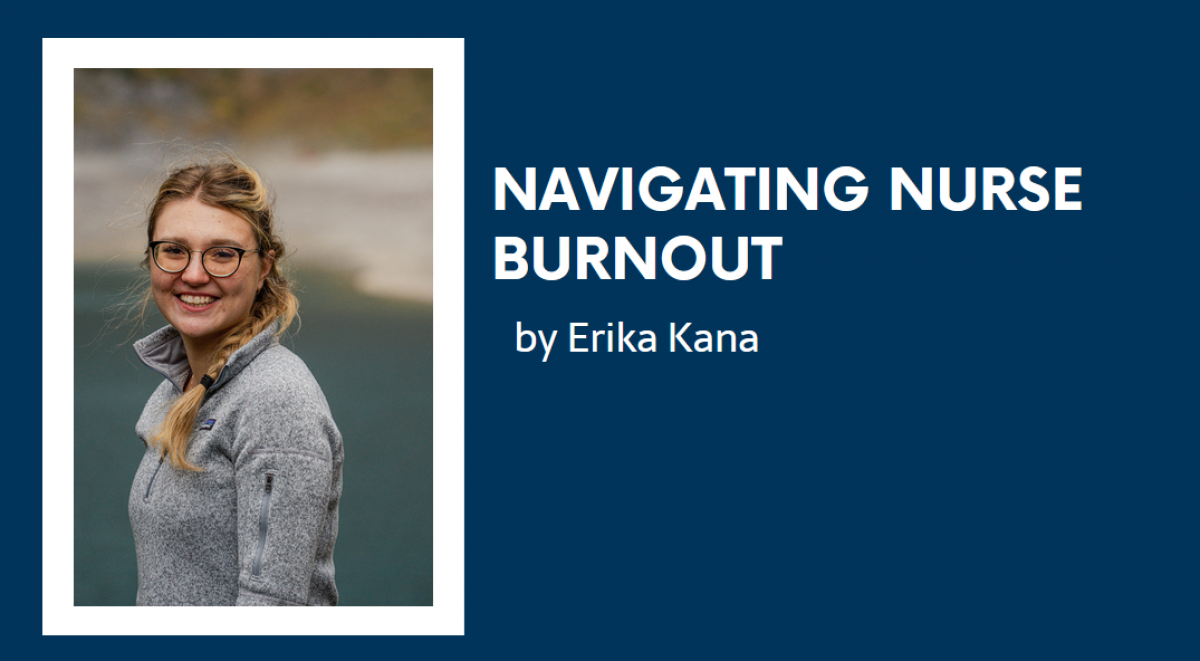
Navigating Nurse Burnout
-By Erika Kana, RN
The average nurse is no stranger to the concept of burnout. There are many causes of burnout. Causes include institutional and individual factors, such as insufficient time to decompress after work, high work stress, or not enough support at work.
How do you recognize the more cumulative effects of burnout compared to a difficult day at work? Symptoms include emotional exhaustion, cynicism, anxiety, frequent sick days, changes in sleep habits, and decreased career satisfaction.
If you know you’re suffering from burnout, what can you do to address it? Institutional levels of change need to occur, such as improving workloads and fostering a positive workplace culture. But there are also things we can do as individuals.
- Prioritize self-care. Self-care can include meditating, exercising, engaging in your favourite hobbies, or spending time with the people you love.
- Focus on your sleep. Sleep renews energy, reduces stress in the body, and helps promote health.
- Find support. This can be done through your workplace, friends or counselling. Therapy can provide you with a space to sort through emotions and frustrations and identify new tools to help you cope with stress.
- Reduce stress. If you work in a stressful work environment, consider switching specialties. If you work long 12-hour shifts and struggle to find work-life balance, consider switching to shorter, 8-hour shifts.
Finally, it’s important to have self-compassion. Remember, you are not alone, weak, or a failure. Be kind to yourself in this challenging time.
Erika Kana is a registered nurse located in Calgary, Alberta. For the past two years, she’s been specializing in emergency medicine. In her free time, she enjoys hiking, playing with her dog, and writing health content.
